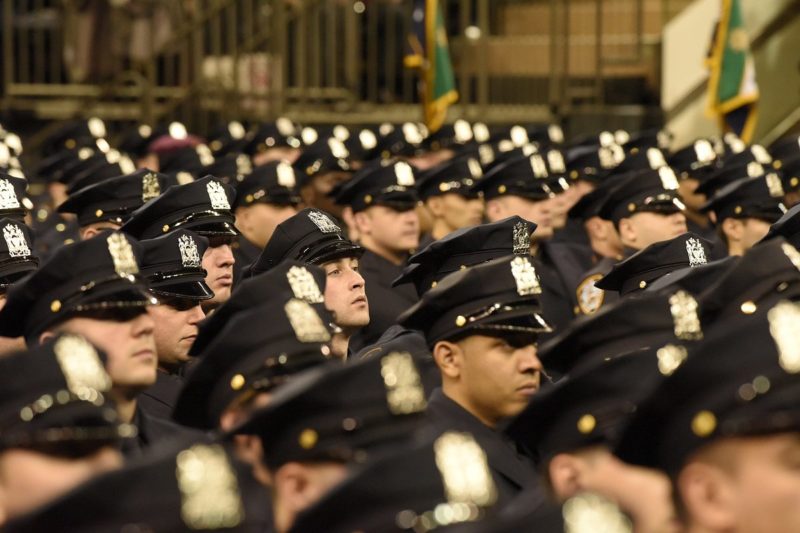#FreedomNow Protests: Police Union ‘Protects Violent Officers’
In New York City, activists called attention to the role the union plays in preventing police accountability. The activists called for the firing a police officer who fatally shot 37-year-old Delrawn Small while off duty in a road rage incident on July 4.

Several activists demanding police accountability were arrested at a local police union building in New York City during a protest that began during Wednesday’s early morning hours.
Organized by the Black Youth Project 100 (BYP 100) NYC, the Million Hoodies Movement for Justice, and The Movement for Black Lives, the protest was held at the Patrolmen’s Benevolent Association headquarters building in Lower Manhattan.
The action was part of the two-day #FreedomNow national call for justice for Black lives. The movement seeks to counter failed policing strategies and disparities in health, education, and housing across the United States.
Rahel Mekdim Teka, the organizing chair for BYP 100 NYC, said in a statement Wednesday that police are trying to manipulate conversations on protecting Black lives by leading the public to believe law enforcement officers are at risk.
Police officers in Louisiana were recently given hate crime protections after the state’s Republican-held legislature passed the so-called Blue Lives Matter bill. Texas is primed to become the next state to give law enforcement officers hate crime protections, even as violence against police has plummeted in recent decades.
“They are not at risk. Police officers are the threat. Police do not keep us safe,” Teka said. “Police do not protect us. They are the danger that keeps Black people unsafe. We [must] divest from institutions that do not value us and instead invest in Black communities.”
In New York City, activists called attention to the role the union plays in preventing police accountability. The activists called for the firing of New York Police Department (NYPD) officer Wayne Isaacs, a three-year veteran of the NYPD who fatally shot 37-year-old Delrawn Small while off duty in a road rage incident on July 4.
Isaacs has been placed on “modified duty” and assigned a desk job while the office of Attorney General Eric Schneiderman investigates Small’s death. The NYPD announced that the officer had been stripped of his gun and shield, the New York Daily News reported.
Monica Dennis, a Black Lives Matter organizer, tweeted protesters’ demands, charging that the Patrolmen’s Benevolent Association “only serves to protect violent officers.”
The Million Hoodies Movement for Justice announced that ten activists from its ranks and BYP 100 had been arrested during the protests. The group sought donations for a bail fund that had raised around 70 percent of its $10,000 goal as of 4 p.m. Wednesday.
Patrolmen’s Benevolent Association President Patrick Lynch issued a statement about the protests and arrests on the union’s Facebook page.
He called the protest “a display of misdirected and misinformed anger that should have been pointed at City Hall, not the police officers who were on hand to protect the demonstrators’ First Amendment rights.”
Lynch criticized protesters for entering the lobby and not dispersing when ordered. He asked local politicians to support police officers and to denounce violence against law enforcement.
The event garnered mass participation at the headquarters, located at the same address as the New York Civil Liberties Union and several private firms.
The New York protest was among several similar actions across the country. In Washington D.C., protesters with BYP 100 DC and Black Lives Matter DC “occupied” the legislative office of the National Fraternal Order of Police, according to a notice on the BYP 100 website.
D.C. protesters wanted officers who supported their fight for justice and accountability to show solidarity by not paying their dues.
On Twitter, Mervyn Marcano, a communications strategist for the Movement for Black Lives, said the successful shutdown in D.C. had lasted more than six hours.
Clarise McCants, an organizer for BYP 100 DC, said in a statement that the FOP functioned like a college fraternity.
“Just like college frats that further rape culture by closing ranks to protect members who are sexual assailants, the FOP has proven that their primary commitment is to protect the worst of their members behind the ‘Blue Wall of Silence’—even in the most heinous of circumstances,” McCants said.
